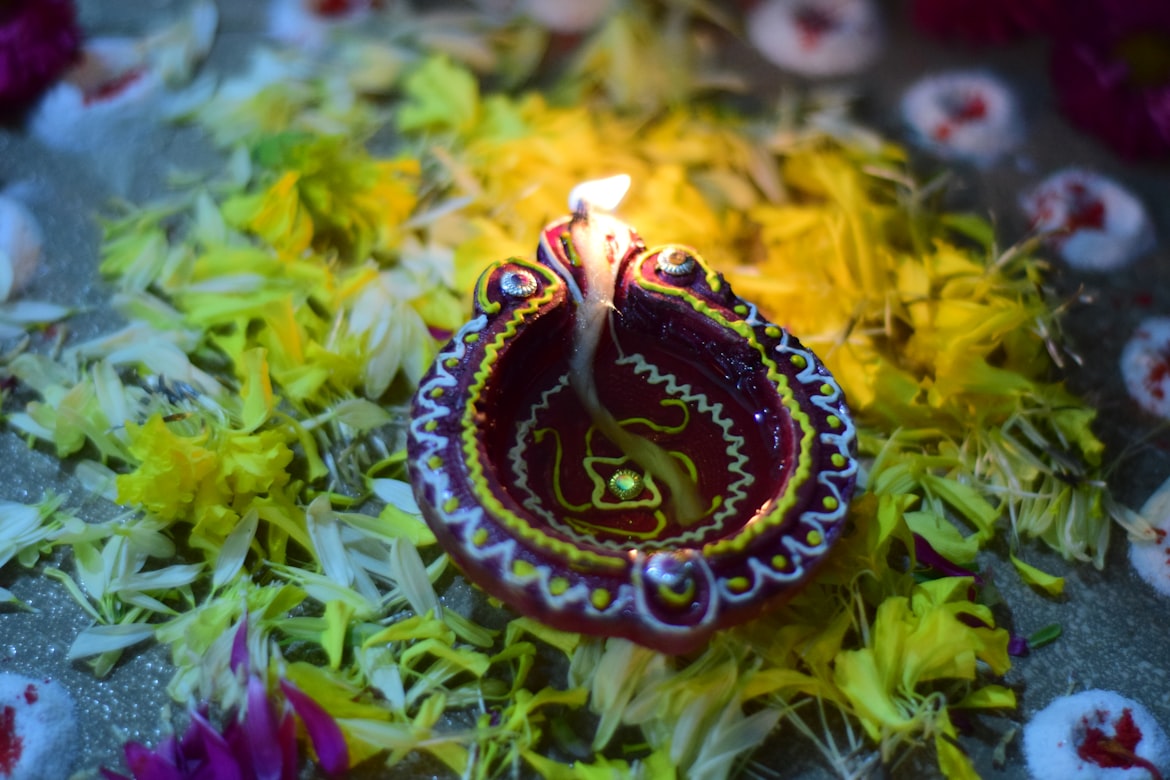Discovering the Magic of Diwali: A Guide to the Festival of Lights

Diwali, also known as the Festival of Lights, is one of the most popular and significant festivals in India and is celebrated by millions of people around the world. The festival is a symbol of victory over darkness and good over evil. During this festive season, people decorate their homes with lights, make rangolis, exchange sweets, and offer prayers to Goddess Lakshmi.
In this article, we will explore everything you need to know about Diwali 2023, its significance, rituals, and celebrations.
The Significance and History of Diwali
Diwali has deep roots in Hindu mythology, with various stories and legends associated with its origin. One of the most popular beliefs is that Diwali marks the return of Lord Rama to his kingdom Ayodhya after defeating the demon king Ravana. The people of Ayodhya celebrated his return by lighting earthen lamps and bursting firecrackers.
Diwali also celebrates the victory of Lord Krishna over the demon Narakasura, symbolizing the triumph of good over evil. The festival also has significance for Jains and Sikhs, with different reasons to celebrate.
Preparations for the Festival
Cleaning and Decoration: Before the arrival of Diwali, people engage in thorough cleaning of their homes, offices, and public spaces. This is done to prepare for the arrival of the goddess of wealth and prosperity, Goddess Lakshmi, who is believed to visit clean and well-decorated homes. People decorate their homes with lights, diyas, rangolis, and flowers to welcome the goddess.
Diwali Celebrations Across India
Regional Variations: Diwali is celebrated across India with much fervor, but different regions have their unique customs and traditions. For example, in North India, people light diyas and burst firecrackers to celebrate the victory of Lord Rama over Ravana, while in South India, people commemorate the defeat of the demon Narakasura. In some regions, people worship Goddess Kali during Diwali.
Five Days of Diwali: Rituals and Traditions
Diwali is a five-day-long festival, each day having its significance and rituals. The first day, Dhanteras, is dedicated to worshipping Goddess Lakshmi and buying new utensils or jewelry. The second day, Naraka Chaturdashi, commemorates the victory of Lord Krishna over Narakasura.

The third day, Diwali, is the main day of the festival, marked by the lighting of diyas, the bursting of firecrackers, and offering prayers to Goddess Lakshmi. The fourth day, Govardhan Puja, celebrates Lord Krishna lifting the Govardhan mountain to save the people of Vrindavan. The fifth day, Bhai Dooj, is dedicated to the bond between siblings.
Traditional Diwali Foods and Sweets
Food is an integral part of the Diwali celebration, and the festival is known for its delectable and mouth-watering sweets and savory dishes. From traditional Indian sweets like laddoos, barfis, and rasgullas to savory snacks like samosas and kachoris, the Diwali spread is a feast for the senses.
One of the most popular Diwali sweets is the aromatic and delicious ‘Gulab Jamun,’ a deep-fried dough ball soaked in sugar syrup. Other popular sweets include ‘Ras Malai,’ ‘Jalebi,’ ‘Kaju Katli,’ and ‘Rasmalai.’ It is customary to prepare and exchange sweets with friends and family during the festival.
Dressing Up for Diwali: Traditional Attire and Jewelry
Diwali is an occasion to dress up in new clothes and jewelry. Women wear traditional Indian attire like sarees, salwar kameez, and lehengas, while men prefer to wear kurta pajamas or traditional Indian suits.
The festival is also a time to adorn oneself with exquisite jewelry like gold and silver earrings, necklaces, bangles, and bracelets. Many people opt for traditional Indian jewelry like ‘jhumkas,’ ‘chandbalis,’ and ‘maang tikka’ to complete their festive look.
Diwali Fireworks and Crackers: Safety Precautions
Fireworks and crackers are an essential part of Diwali celebrations, but it is crucial to exercise caution while handling them. It is essential to purchase fireworks and crackers from authorized sellers and to follow the instructions for use carefully. Children should be supervised while handling fireworks and should wear protective clothing. It is also crucial to keep a bucket of water or sand handy in case of emergencies.
Eco-Friendly Diwali Celebrations: Go Green
With growing environmental concerns, many people are now opting for eco-friendly Diwali celebrations. One of the ways to celebrate an eco-friendly Diwali is to avoid using crackers and instead use eco-friendly alternatives like sparklers or flowerpots. Another way is to use decorations made of natural materials like marigold flowers or banana leaves. One can also choose to gift eco-friendly products like planters, organic skin care products, or reusable bags.
Diwali Gifts and Shopping: Ideas and Trends
Exchanging gifts is a significant aspect of the Diwali celebration. From traditional Indian sweets and dry fruits to electronic gadgets and home appliances, the gift options are endless. One of the popular Diwali gift trends is to opt for personalized and customized gifts like photo frames, mugs, and t-shirts.
Another trend is to gift experiences like spa treatments, travel vouchers, or cooking classes. Many people also prefer to shop online for their Diwali gifts as it offers convenience and a wide range of options to choose from.
Finally, to conclude, Diwali is not just a festival; it is a celebration of life, positivity, and happiness. It brings people together, strengthens bonds, and spreads love and joy. We hope this guide will help you understand the essence of Diwali and inspire you to celebrate it with zeal and enthusiasm. Let’s light up our homes and hearts with the spirit of Diwali 2023!





